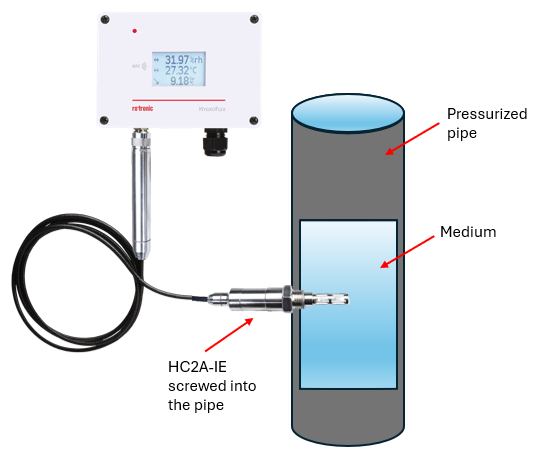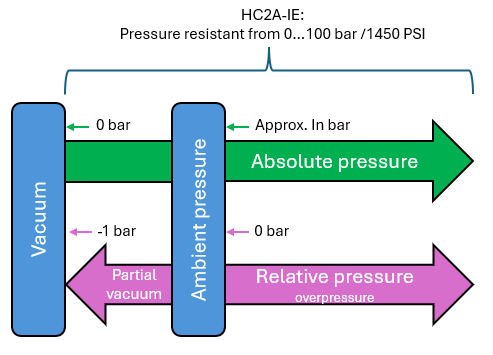We recommend the use of the HC2A-IE (for more technical info see HC2A-IC/IM/IE) in pressurized application, for under or overpressure.

But what does underpressure and overpressure mean?
The following illustration is used to describe terms under and overpressure, vacuum, absolute and relative pressure:
oUnderpressure (negative pressure or partial vacuum): This occurs when the pressure in a system is lower than the ambient pressure. In the image, underpressure is depicted in the relative pressure section to the left of the 0 bar mark, moving towards the vacuum, which is shown as -1 bar relative pressure.
oOverpressure (positive pressure): This occurs when the pressure in a system is higher than the ambient pressure. In the image, overpressure is represented in the relative pressure section to the right of the 0 bar mark, indicating pressures above ambient pressure.
oAbsolute Pressure: This is the pressure relative to a perfect vacuum. The image shows that absolute pressure ranges from 0 bar (in a vacuum) up to the ambient pressure, which is approximately 1 bar.
oAmbient Pressure: This is the atmospheric pressure, which is shown in the image as approximately 1 bar in absolute pressure. It is the reference point for measuring relative pressure.
oRelative Pressure: Also known as gauge pressure, this is the pressure relative to ambient pressure. In the image, ambient pressure is taken as 0 bar relative pressure. Pressures lower than the ambient pressure are shown as moving towards a vacuum, with a full vacuum being -1 bar relative pressure.
oVacuum: The image shows a vacuum as having an absolute pressure of 0 bar and a relative pressure of -1 bar. Partial vacuum conditions are those pressures below ambient pressure but above 0 bar absolute pressure.
